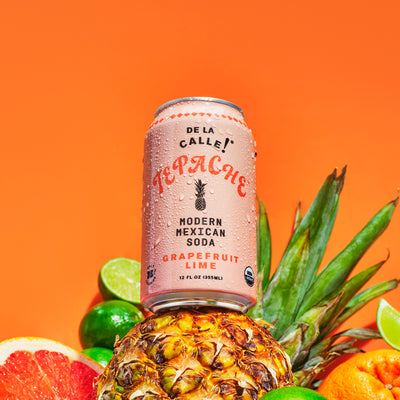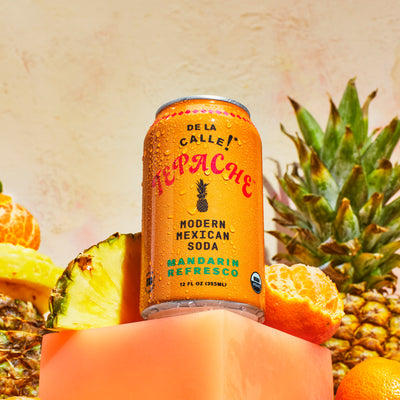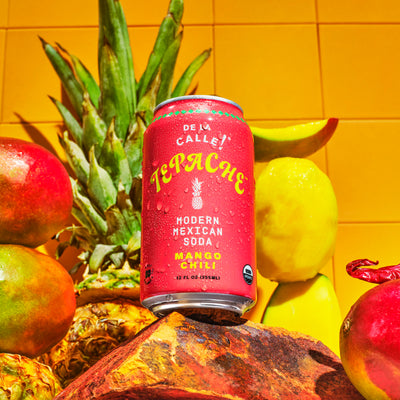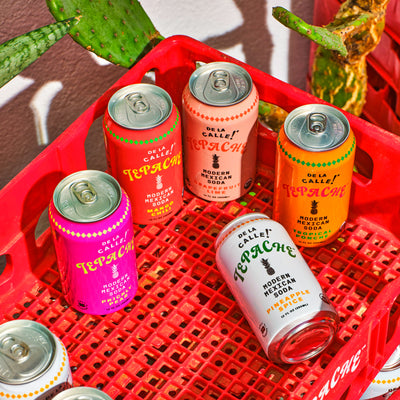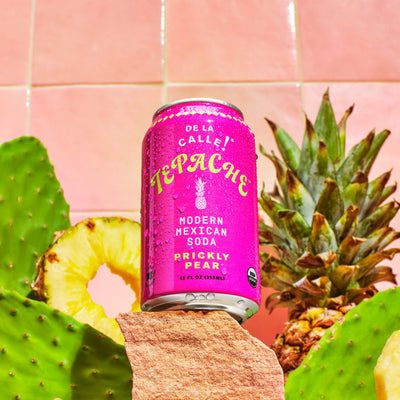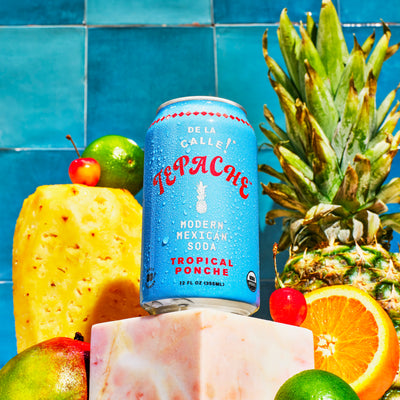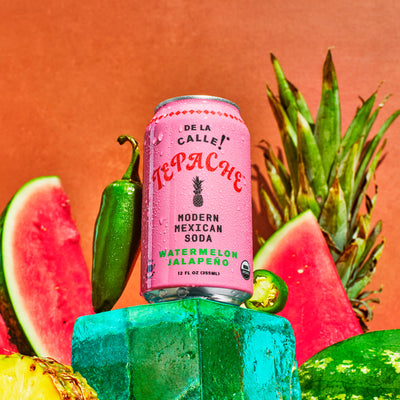Prebiotics Benefits You Didn't Know About

Fermented foods are gaining popularity in the health food world at the moment, and prebiotics are part of what makes fermented foods so healthy. That said, if you don’t know anything about fermented foods, probiotics, and prebiotics, don’t worry!
This article will tell you everything you need to know about the benefits of prebiotics and how to incorporate them into your diet.
Prebiotics Overview
Before getting into the specifics, it’s important to have a general understanding of prebiotics. Prebiotics are a form of dietary fiber that feed the “good” bacteria in your gut. Although you may be used to thinking of bacteria as something that causes illness and makes you sick, there are trillions of “good” bacteria, most of which live in your gut, that are essential to your overall health.
These bacteria help you digest food, absorb nutrients, produce several vitamins in your intestinal tract, and produce short-chain fatty acids that can improve metabolic health. Like all living organisms, these bacteria need a fuel source. Prebiotics serve as the fuel source for this “good” bacteria and helps keep your body functioning properly, all the while supporting good gut health.
You can incorporate prebiotics into your diet in the form of supplements. However, it may be more beneficial to incorporate foods with prebiotic properties into your diet because they often contain important nutrients and probiotics.
Probiotics vs. Prebiotics
If you’ve tried any prebiotic drinks recently, such as tepache, you might be familiar with the term probiotics. Although they sound similar, there is a difference between probiotics and prebiotics. Probiotics are the “good” bacteria that live in your gut (found in foods like kimchi and yogurt), and prebiotics are the fiber that feed the bacteria.
You can think of probiotics as the plant and prebiotics as the water that helps the plant grow. If you want to incorporate probiotic bacteria into your diet, it is essential to also incorporate prebiotics so that the bacteria can survive and thrive in your gut.
What Foods Are Prebiotics?
Several different foods have prebiotic effects. Some of these probiotic foods include:
- Asparagus: A tasty flowering plant whose young shoots are used as a spring vegetable.
- Bananas: A long fruit with several different varieties, commonly has a yellow peel and a sweet, subtle flavor.
- Onions: A delicious root vegetable that is often paired with garlic.
- Jerusalem artichoke: Also known as sunroot, earth apple, and sunchoke, this is part of the sunflower family and looks like a sunflower.
- Leeks: Another vegetable in the same family as onions and garlic. They are often used in soups and other winter dishes.
- Chicory root: The root of a flowering plant with a coffee-like flavor.
- Garlic: A flavorful herb that can be used in a wide variety of dishes and is a cornerstone of several cuisines.
- Kombucha: A beverage made of fermented tea with a sour, tangy flavor and carbonated texture.
- Tepache: A fermented beverage made from the rinds of pineapples, commonly seasoned with sugar and cinnamon.
What Is Inulin?
Inulin is a type of prebiotic that cannot be digested in the stomach. Given that it is not absorbed in the stomach, inulin moves to the gut, where it can serve as a fuel source for the bacteria that make up the gut microbiota.
Inulin is a starchy fiber that is found in many fruits and vegetables. Some of these include wheat, onions, bananas, leeks, artichokes, asparagus, and chicory root.
Benefits of Prebiotics
There are several health benefits of prebiotics. In this section, we’ll take a look at some of the common, compelling benefits of this type of dietary fiber.
Immune System Stimulation
One of the primary benefits of both prebiotics and probiotics is that they can stimulate your immune system. The health of the bacteria that make up your gut microbiome is a good indicator of your overall health.
When there are more beneficial bacteria, such as lactic acid bacteria and bifidobacteria, in your gut, your overall health improves. One way to increase the population of “good” bacteria in your gut is to provide them with a consistent fuel source in the form of prebiotics.
Mineral Absorption
Prebiotics and also improve the absorption of minerals in your body, specifically calcium and magnesium. Both of these minerals have beneficial effects on bone mineralization. Prebiotics help produce short-chain fatty acids.
These acids help acidify the gut lumen, which increases the solubility of the minerals in the gut. This acidification also leads to increased expression of calcium-binding proteins in the large intestine.
Constipation Relief
Prebiotics can aid in constipation relief because they promote the growth of beneficial gut bacteria. A major cause of constipation is an imbalance in the gut microbiota.
When you incorporate foods that promote bacterial equilibrium, such as prebiotics, you can lower your risk for constipation and digestive discomfort.
Cholesterol-Lowering Effects
As previously mentioned, short-chain fatty acids are produced by prebiotics. These acids are metabolized by the liver, which can lower blood pressure, a sign of decreased levels of cholesterol.
Another way prebiotics can have cholesterol-lowering effects is by absorbing fats and phospholipids in the lower intestine.
Obesity Prevention
Low-grade inflammation can disrupt the metabolizing of glucose and the absorption of fate which are both features of obesity. The gut microbiota is involved in both of these processes.
Prebiotics can play a role in preventing obesity by reducing low-grade inflammation in the intestine. Reducing inflammation in the intestine can improve metabolic alterations and promote weight loss.
Conclusion
Prebiotics are dietary fibers found in many foods such as fruit, vegetables, and fermented beverages. Some foods that contain prebiotics include garlic, bananas, tepache, kombucha, and Jerusalem artichoke.
Not to be confused with probiotics, prebiotic foods act as the fuel for probiotic bacteria. One common type of prebiotic is inulin, a starchy fiber found in foods such as leeks, artichokes, and asparagus.
Your gut microbiome is made up of trillions of types of bacteria that keep you healthy. These bacteria help you digest food, absorb nutrients, produce vitamins in your intestinal tract, and produce short-chain fatty acids. For this reason, it may be beneficial to incorporate both prebiotics and probiotics into your diet to help maintain a healthy bacterial equilibrium in your gut.
There are several health benefits of prebiotics. Prebiotics help stimulate your immune system and promote the absorption of minerals such as calcium and magnesium in your body. They also can provide relief from constipation by acting as a laxative and lower your cholesterol levels. Prebiotics may also help prevent and treat obesity. For this reason, prebiotics are a great option for anyone looking to lose weight, boost their immune system, or eat a healthier diet in general.
Sources:
Fiber and Prebiotics: Mechanisms and Health Benefits | NCBI
Prebiotic effects: metabolic and health benefits | NIH
Short-chain fatty acids: a link between prebiotics and microbiota in chronic kidney disease | NIH


